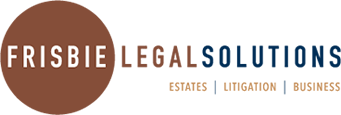Have you put off estate planning because you’re too busy? Maybe you’re waiting for a better time (e.g., after the holidays, when you get back from vacation, once tax season has ended, etc.).
I speak from experience when I say, “There has never been a better time to take stock in the planning you may have been putting off for another day.” Before you begin, here are some important things to keep in mind.
Estate Plan: Four Essential Components to Consider
An estate plan can be simple or complex. To help you understand the basics, here are important components of an estate plan that are good to know.
1. Disposition of Property
At its core, an estate plan outlines the mechanisms that will be put to work to dispose of your property after you pass away. These instructions are stated in your Will, which is the official record of your final wishes, instructing where and to whom your property will go. A will controls the items owned by you individually such as:
- Real estate
- Cash, stock
- Property, personal and real
A Will also controls how the money you leave behind is to be distributed, whether to your spouse, children, other relatives, and gifts to charity. However, a will does not control everything. It does not control:
- Life insurance
- Retirement accounts
- Joint accounts
- Certain types of deeds
- Anything with a beneficiary designation (retirement accounts, life insurance, etc.)
In sum, you should have a Will and you should review how your property is titled. In addition, you should make sure your beneficiary designations are up to date.
2. People to help you with decision making – Power of Attorney
It is also wise to have a Power of Attorney. In a Power of Attorney, you designate someone to act for you as your official “Agent” to carry out your affairs in the event you become incapacitated, whether temporarily or long-term, or simply cannot do things.
3. Health Care Decision Making
There is a Health Care Power attorney in which you designate someone to make health care decisions for you.
4. Living Will / Advance Directive
A Living Will, also known as an Advance Directive,is a document where you decide the type of treatment you will get if you are at the end of your life.
No matter what you decide to do, you should always be able to understand what your Will and any Powers of Attorney documents say. My background s has prepared me with the right experience and knowledge to help you clearly present your wishes and intentions so that they are followed.
Let me help you understand and prepare your estate plan.
Michael Frisbie
Frisbie Legal Solutions
329A South Main Street
Doylestown, PA 18901
267-899-1776
267-899-1775 (FAX)
michael@frisbielegalsolutions.com
Frisbie Legal Solutions, PLLC is a registered Pennsylvania professional limited liability company. The information on this web site is designed for general informational purposes only. Frisbie Legal Solutions provides legal services and advice to clients only after an attorney client relationship has been formed through a written agreement. The information presented should not be construed to be formal legal advice nor the formation of an attorney client relationship. Any communications sent through this website are not privileged and confidential.

